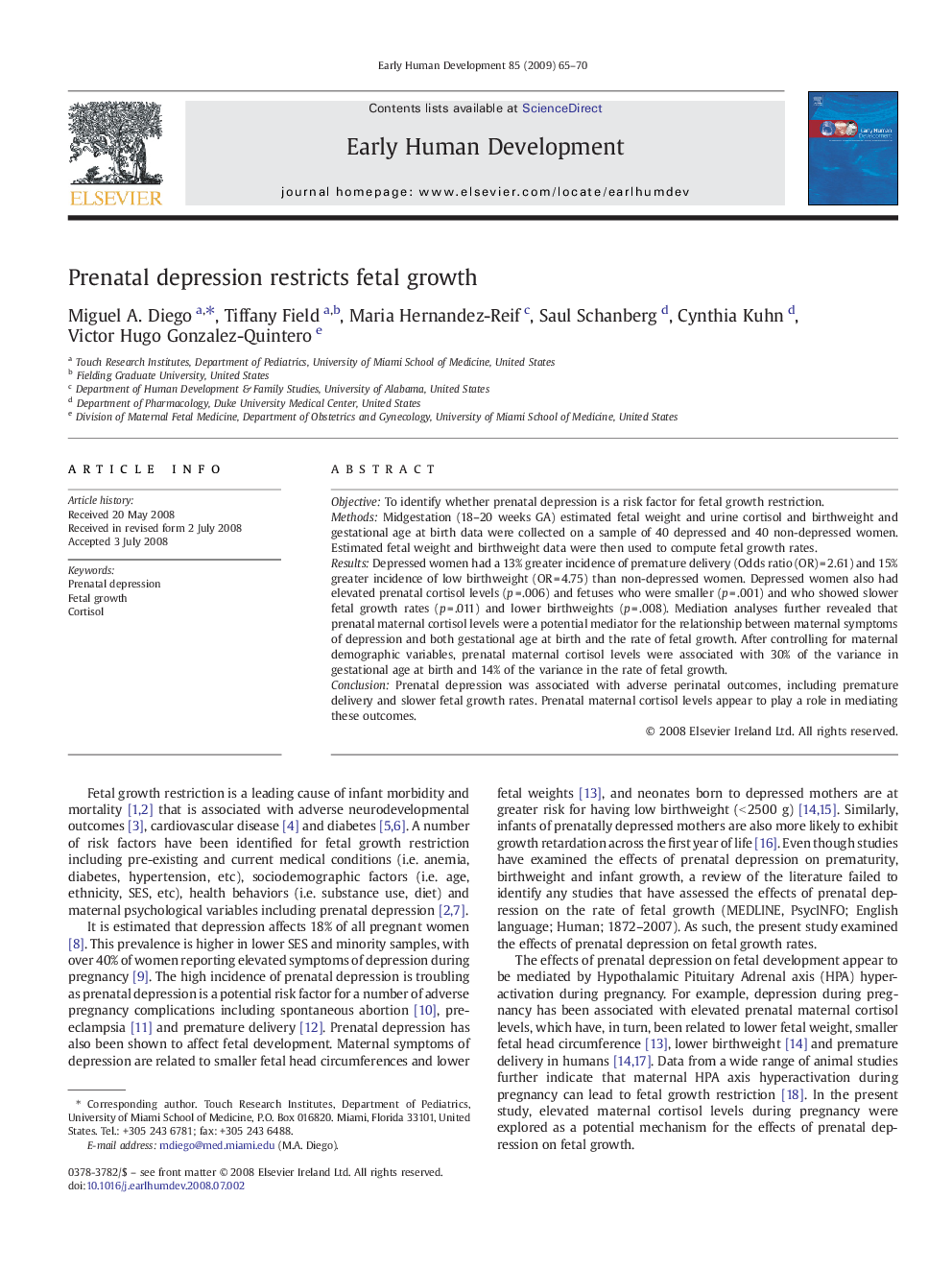| Article ID | Journal | Published Year | Pages | File Type |
|---|---|---|---|---|
| 3917975 | Early Human Development | 2009 | 6 Pages |
ObjectiveTo identify whether prenatal depression is a risk factor for fetal growth restriction.MethodsMidgestation (18–20 weeks GA) estimated fetal weight and urine cortisol and birthweight and gestational age at birth data were collected on a sample of 40 depressed and 40 non-depressed women. Estimated fetal weight and birthweight data were then used to compute fetal growth rates.ResultsDepressed women had a 13% greater incidence of premature delivery (Odds ratio (OR) = 2.61) and 15% greater incidence of low birthweight (OR = 4.75) than non-depressed women. Depressed women also had elevated prenatal cortisol levels (p = .006) and fetuses who were smaller (p = .001) and who showed slower fetal growth rates (p = .011) and lower birthweights (p = .008). Mediation analyses further revealed that prenatal maternal cortisol levels were a potential mediator for the relationship between maternal symptoms of depression and both gestational age at birth and the rate of fetal growth. After controlling for maternal demographic variables, prenatal maternal cortisol levels were associated with 30% of the variance in gestational age at birth and 14% of the variance in the rate of fetal growth.ConclusionPrenatal depression was associated with adverse perinatal outcomes, including premature delivery and slower fetal growth rates. Prenatal maternal cortisol levels appear to play a role in mediating these outcomes.
